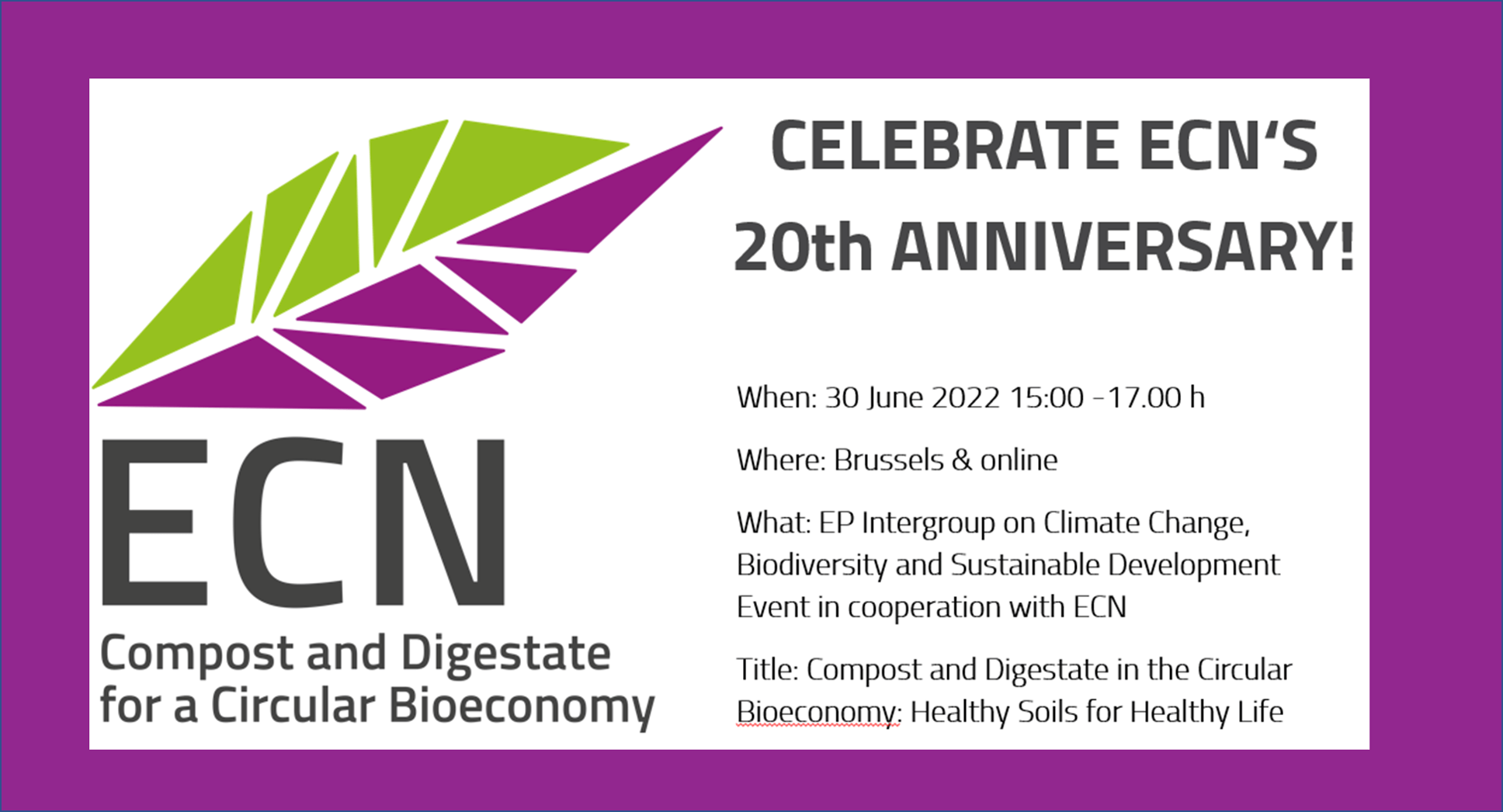- Version
- Download 24316
- File Size 226.35 KB
- File Count 1
- Create Date 28 June 2022
- Last Updated 28 June 2022
Bio-Waste Treatment Contributes Over € 2 Billion Annually to Europe’s Bioeconomy
PRESS RELEASE
FOR IMMEDIATE RELEASE: 30 June 2022
ECN CELEBRATES 20 YEAR ANNIVERSARY WITH BIO-WASTE TREATMENT AT AN ALL-TIME HIGH
Bio-Waste Treatment Contributes Over € 2 Billion Annually to Europe’s Bioeconomy
Brussels: A record amount of bio-waste is now processed annually across Europe to make compost and anaerobic digestate. ECN, the European membership organisation representing bio-waste experts and plant operators, commissioned a survey over the past year investigating the state of Europe’s bio-waste treatment industry. It found that 71 million tonnes of bio-waste were treated through composting and anaerobic digestion in 2019, with the EU27 accounting for 60 million of this. Collectively, the sector was estimated to contribute over € 1.6 billion a year to the gross domestic product of the EU27, CH, NO and UK, with the fertiliser and carbon content of compost alone being valued at € 950 million a year.
‘This is fantastic news’, said Kristel Vandenbroek, Chair of ECN, noting that ‘ECN was formed two decades ago by a group of like-minded individuals who set out to promote bio-waste processing and the formation of quality compost and anaerobic digestate across Europe. It is testament to their vision, the hard work of ECN and our members that we are in the position we are today.’
Stefanie Siebert, ECN Executive Director, commented: ‘The survey highlights the significant contribution bio-waste processing makes to the environment, the people and the economy of Europe. At a time when food security is coming under threat, the effects of climate change are starting to be felt and the productivity of Europe’s soils are declining, it is reassuring to know that our sector is helping to address these challenges. Bio-waste treatment is a cross-cutting policy issue that has a pivotal role to play in the EU’s Green Deal, Farm to Fork, Soil, Bioeconomy and Biodiversity Strategies. The results of this survey will support its rightful place in each of these policy instruments.’
The survey will be launched today, on 30 June at a seminar in Brussels organised by the European Parliament Intergroup on ‘Climate Change, Biodiversity and Sustainable Development’ in collaboration with ECN.
###
NOTES TO EDITORS
- Bio-waste is made up of biodegradable garden and park waste, food and kitchen waste from households, restaurants, caterers and retail premises, and comparable waste from food processing plants.
- Recycling bio-wastes through composting and/or anaerobic digestion helps recycle plant nutrients and organic carbon, as well as reducing greenhouse gas emissions. Compost helps restore degraded soils and increases crop productivity.
- The ECN Data Report 2022 ‘Compost and Digestate for a Circular Bioeconomy’ Overview of Bio-Waste Collection, Treatment and Markets Across Europe’ can be accessed here.
- The agenda of the EP Intergroup and ECN event on ‘Compost and Digestate in the Circular Bioeconomy: Healthy Soil for Healthy Life’ can be accessed here.
- Registration for the event here.
Attached Files
| File | Action |
|---|---|
| 20220630 ECN Press Release_final.docx | Download |

